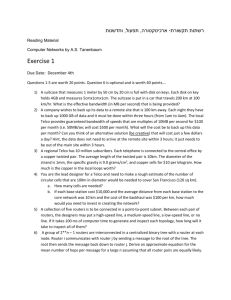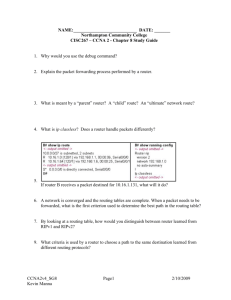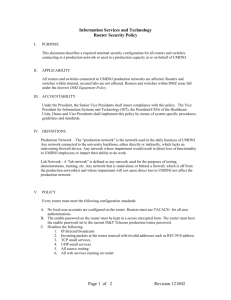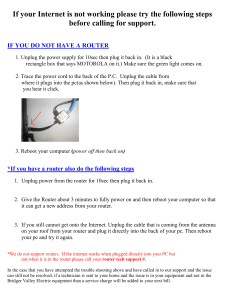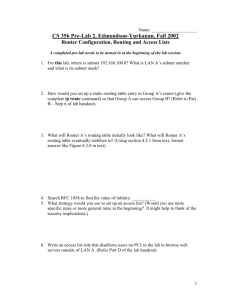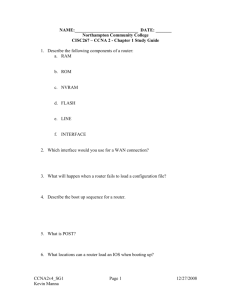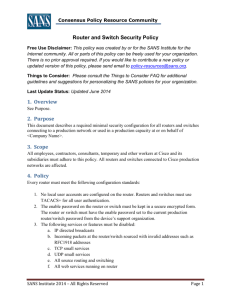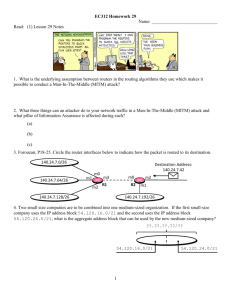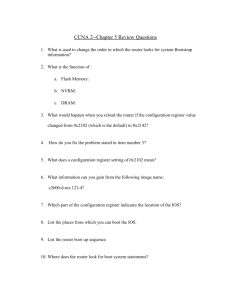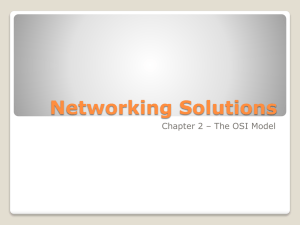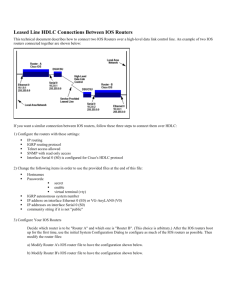ISMS15 Router Security Policy
advertisement
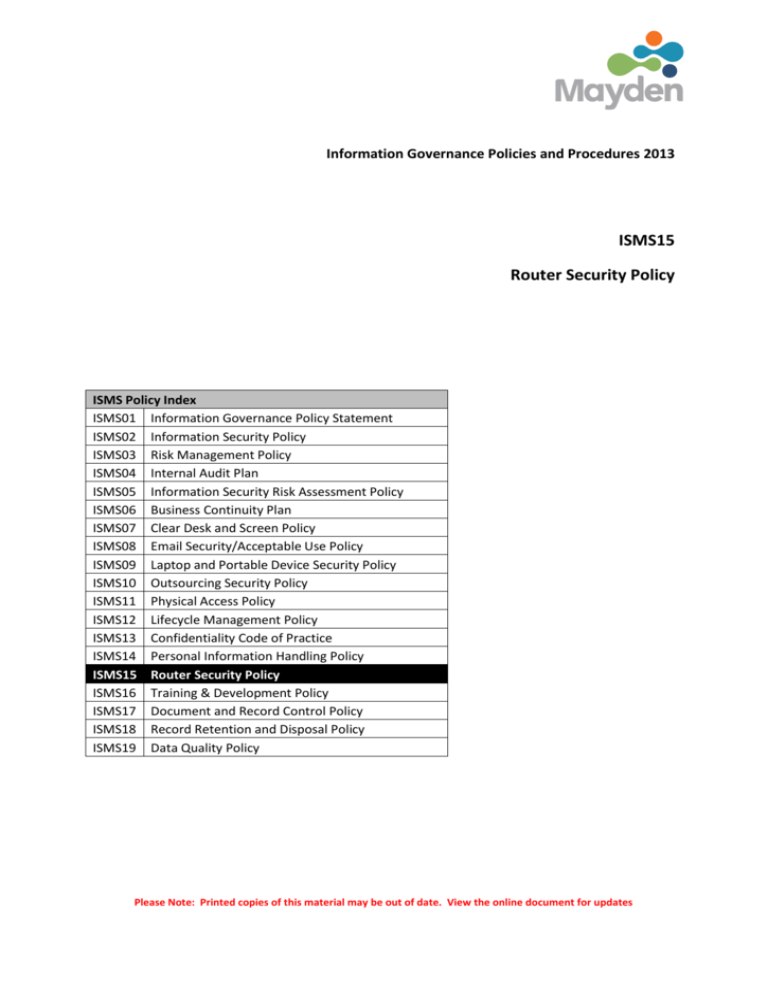
Information Governance Policies and Procedures 2013 ISMS15 Router Security Policy ISMS Policy Index ISMS01 Information Governance Policy Statement ISMS02 Information Security Policy ISMS03 Risk Management Policy ISMS04 Internal Audit Plan ISMS05 Information Security Risk Assessment Policy ISMS06 Business Continuity Plan ISMS07 Clear Desk and Screen Policy ISMS08 Email Security/Acceptable Use Policy ISMS09 Laptop and Portable Device Security Policy ISMS10 Outsourcing Security Policy ISMS11 Physical Access Policy ISMS12 Lifecycle Management Policy ISMS13 Confidentiality Code of Practice ISMS14 Personal Information Handling Policy ISMS15 Router Security Policy ISMS16 Training & Development Policy ISMS17 Document and Record Control Policy ISMS18 Record Retention and Disposal Policy ISMS19 Data Quality Policy Please Note: Printed copies of this material may be out of date. View the online document for updates ISMS15 Router Security Policy ISMS 2013 Current Version Responsibility of Information Governance Lead Reviewed by IG Group First Issued 16 March 2011 Last Review Date December 2012 Next Review Date December 2013 Version History Version Date Comment Initials Draft 16/3/11 Draft ISMS 2011 PE 13/7/11 Draft QA ASD 2.0 1/10/11 Issued to company for comment ASD 2.1 Dec 11 Updated for issues arising from company-wide review ASD 3.1 25/1/12 Latest version release incorporating changes from review by all staff October 2011 ASD 4.0 11/03/13 Latest version release incorporating changes from review by all staff December 2012 PB Roles and Responsibilities Information Governance Lead Chris May Information Security Lead Steve Exley Patient Data Governance Chris Eldridge Company and Employee Data Governance Alison Sturgess-Durden Assurance Lead Paula Bullen Signature ISMS15 Router Security Policy ISMS 2013 CONTENTS 1 2 3 Purpose ........................................................................................................................................... 1 Scope ............................................................................................................................................... 1 Definitions ....................................................................................................................................... 1 3.1 Terms and Definitions ............................................................................................................. 1 4 Policy ............................................................................................................................................... 1 ISMS15 Router Security Policy 1 ISMS 2013 Purpose This document describes a required minimal security configuration for all routers and switches connecting to a production network or used in a production capacity at or on behalf of Mayden. 2 Scope All routers and switches connected to Mayden production networks are affected. Routers and switches within internal, secured labs are not affected. 3 Definitions 3.1 Terms and Definitions Production Network: The "production network" is the network used in the daily business of Mayden. Any network connected to the corporate backbone, either directly or indirectly, which lacks an intervening firewall device. Any network whose impairment would result in direct loss of functionality to Mayden employees or impact their ability to do work. Lab Network: A "lab network" is defined as any network used for the purposes of testing, demonstrations, training, etc. Any network that is stand-alone or firewalled off from the production network(s) and whose impairment will not cause direct loss to Mayden nor affect the production network. 4 Policy Every router must meet the following configuration standards: 1. No local user accounts are configured on the router. 2. The enable password on the router must be kept in a secure encrypted form. The router must not have the enable password set to the current production router password from the router's support organisation. The Router Password must be changed periodically (every 4-6 months). All passwords defined on the router should meet the following criteria: • Minimum 8 characters in length • Should be alphanumeric along with special characters (@#$%) • Should not include organisation’s name in it 3. Access rules are to be added as business needs arise. 4. The router must be included in the corporate enterprise management system with a designated point of contact. 5. All user accounts should be assigned the lowest privilege level that allows them to perform their duties. 1
